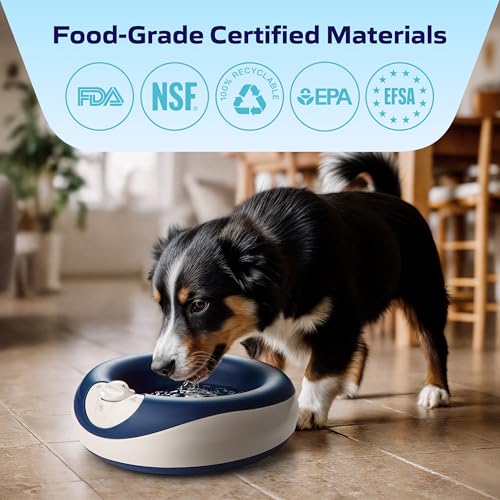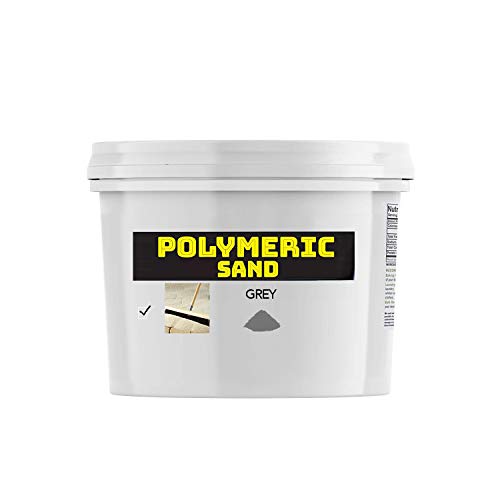




As a dedicated dog owner, I know how distressing it can be to see our furry companions suffer from gastritis. This condition, characterised by inflammation of the stomach lining, can cause significant discomfort for dogs. It can lead to symptoms such as vomiting, loss of appetite, and lethargy. Finding the right diet to manage gastritis is crucial to ensuring our pets’ well-being and recovery.
Over the years, I have researched extensively and consulted with numerous veterinarians to understand the best dietary practices for managing gastritis in dogs. It’s not just about feeding them bland food; it’s about selecting ingredients that soothe the stomach, promote healing, and provide balanced nutrition. In this article, I’ll share my findings on the best foods for dogs with gastritis, backed by expert advice and personal experience.
Understanding what triggers gastritis in dogs is the first step towards effective management. Various factors, including stress, infections, dietary indiscretions, and certain medications, can contribute to this condition. Therefore, it’s essential to tailor their diet to minimise irritation and support their digestive health. Let’s delve into the specific foods and dietary adjustments that can help alleviate gastritis symptoms and improve the quality of life for our beloved dogs.
Best Foods for Gastritis in Dogs
Dealing with gastritis in dogs can be quite challenging. I remember the first time my dog was diagnosed with gastritis; it was a difficult period filled with vet visits and dietary adjustments. However, understanding what foods are beneficial for a dog with gastritis can significantly ease their discomfort and aid in their recovery.
It’s crucial to select foods that are gentle on their stomachs and promote healing. Here, I’ll share some of the best dietary choices I’ve found that can help manage and alleviate the symptoms of gastritis in dogs.
Recommended Foods
When it comes to feeding a dog with gastritis, bland and easily digestible foods are essential. Here are some options that worked well for my dog:
- Boiled Chicken: Skinless, boneless chicken is a great protein source that is gentle on the stomach.
- White Rice: Cooked white rice can help bind stools and provide energy without irritating the stomach lining.
- Boiled Potatoes: Another easily digestible carbohydrate source that can be a good alternative to rice.
- Oatmeal: Plain, cooked oatmeal can be soothing and provide necessary fibre.
- Bone Broth: A nutrient-rich option that can help keep your dog hydrated and provide essential nutrients.
Besides these, incorporating certain vegetables can also be beneficial:
- Carrots: Cooked carrots are gentle on the stomach and provide vitamins and minerals.
- Pumpkin: Plain, canned pumpkin (not the pie mix) is excellent for digestive health and can help with both diarrhoea and constipation.
- Sweet Potatoes: These are highly digestible and can be a good source of vitamins and fibre.
It’s important to avoid feeding your dog anything too fatty or spicy, as these can exacerbate gastritis symptoms. Always introduce new foods gradually and observe your dog for any adverse reactions.
Incorporating these foods into your dog’s diet can make a significant difference in managing gastritis. Remember to always consult with your vet before making any significant changes to your dog’s diet to ensure it meets their specific health needs.
Understanding Gastritis in Dogs: Symptoms and Causes
When our furry companions suffer from gastritis, it’s essential to understand what they’re going through. Gastritis, the inflammation of the stomach lining, can be acute or chronic, each with its unique set of symptoms and underlying causes. Recognising these symptoms early and understanding the potential causes can make a significant difference in managing your dog’s health.
In my experience, dogs with gastritis often exhibit a range of symptoms. Common signs include vomiting, which may be acute and sudden or chronic and recurring. Dogs might also show a decrease in appetite, leading to weight loss over time. Additionally, you might notice your dog having diarrhoea, lethargy, or a noticeable change in their behaviour, such as increased restlessness or discomfort, particularly after meals.
Causes of Gastritis in Dogs
The causes of gastritis in dogs can vary widely. Acute gastritis often results from dietary indiscretion, where a dog eats something they shouldn’t, like garbage, spoiled food, or a foreign object. Toxic substances, including certain plants, chemicals, or medications, can also cause sudden stomach inflammation. Infections from bacteria, viruses, or parasites are other common culprits.
Chronic gastritis, on the other hand, is frequently associated with long-term issues. It could stem from ongoing dietary problems, such as food allergies or intolerances, or from underlying health conditions like kidney or liver disease. Chronic exposure to certain medications, particularly non-steroidal anti-inflammatory drugs (NSAIDs), can also contribute to the persistent irritation of the stomach lining.
Understanding these causes helps in both preventing and managing gastritis in dogs. Ensuring a balanced diet, avoiding exposure to toxins, and regular vet check-ups can all play a crucial role in keeping your dog’s digestive system healthy.
The Importance of Diet in Managing Canine Gastritis
As a pet owner, I’ve learned that managing canine gastritis involves more than just veterinary care; it’s also about making informed dietary choices for my dog. When my dog was diagnosed with gastritis, I discovered that the food I provide plays a crucial role in alleviating their symptoms and promoting recovery.
Gastritis, an inflammation of the stomach lining, can be triggered by various factors, including dietary indiscretions, infections, or chronic conditions. Therefore, selecting the right foods becomes essential in managing this condition and ensuring my dog’s well-being.
Nutritional Adjustments for Canine Gastritis
To support my dog’s recovery, I made several changes to their diet. First, I focused on providing easily digestible foods that are gentle on their stomach. These include boiled chicken, white rice, and plain pumpkin. Avoiding fatty or highly seasoned foods was critical, as these can exacerbate the symptoms.
In addition, I incorporated more frequent, smaller meals throughout the day. This strategy helps to prevent the stomach from becoming too empty or overly full, both of which can irritate the stomach lining. A consistent feeding schedule also aids in regulating digestive processes.
Inclusion of Specific Nutrients
- Fibre: Adding soluble fibre, such as that found in oats or sweet potatoes, can help in soothing the stomach lining and improving digestion.
- Lean Proteins: Sources like turkey or lean beef provide necessary protein without the added fat that can trigger gastritis symptoms.
- Probiotics: Incorporating probiotics into the diet helps in maintaining a healthy gut flora, which is beneficial for digestion and immune function.
These dietary adjustments have been instrumental in managing my dog’s gastritis. By carefully selecting ingredients and focusing on nutritional balance, I’ve been able to provide relief and promote better digestive health for my furry friend.
Optimal Protein Sources for Dogs with Gastritis
When it comes to managing gastritis in dogs, choosing the right protein sources is crucial. Gastritis, an inflammation of the stomach lining, can be triggered or exacerbated by certain foods. Ensuring that your dog receives easily digestible proteins can help alleviate symptoms and promote healing.
In my experience, identifying the best proteins involves understanding which options are gentle on the stomach while still providing the necessary nutrients. Here, I’ve compiled a list of protein sources that are generally well-tolerated by dogs with gastritis and can support their overall health.
Recommended Protein Options
- Boiled Chicken: Skinless, boneless chicken breasts are an excellent choice. They are low in fat and easy to digest, making them a safe option for dogs with sensitive stomachs.
- Lean Turkey: Similar to chicken, turkey is another lean protein that is mild on the stomach. Ensure that it is prepared without any seasoning or skin.
- Fish: Fish such as cod or haddock are highly digestible and rich in omega-3 fatty acids, which have anti-inflammatory properties. Always cook the fish thoroughly and remove any bones.
- Eggs: Cooked eggs, particularly scrambled or boiled, are a gentle protein source. They are easily digestible and packed with essential amino acids.
- Cottage Cheese: Low-fat cottage cheese can be a good protein supplement, though it should be introduced gradually to ensure it doesn’t upset your dog’s stomach.
It’s important to note that while these protein sources are generally well-tolerated, each dog is unique, and what works for one may not work for another. Always introduce new foods slowly and monitor your dog for any signs of discomfort or allergic reactions.
Consulting with your veterinarian before making any dietary changes is also recommended to ensure that your dog’s specific nutritional needs are met and that their gastritis is effectively managed.
Best Carbohydrate Options for Gastritis Relief
When my dog was diagnosed with gastritis, I realised that a key part of managing this condition involves careful selection of their diet, particularly the carbohydrates. Providing the right kind of carbohydrates can significantly alleviate the symptoms and promote a healthier digestive tract.
Through research and consultation with my vet, I discovered several carbohydrate sources that are gentle on a dog’s stomach while providing necessary energy and nutrition. These options not only help manage gastritis but also ensure my dog gets a balanced diet.
Recommended Carbohydrate Sources
- Cooked White Rice: This is a staple for dogs with gastritis. White rice is easily digestible and helps in firming up stools. Its bland nature makes it a safe choice for sensitive stomachs.
- Sweet Potatoes: Rich in vitamins and fibre, sweet potatoes offer a gentle source of carbohydrates. They are less likely to cause stomach upset and can be mashed or pureed for easy consumption.
- Oatmeal: Oatmeal is another excellent option due to its soothing effect on the stomach. It’s a good source of soluble fibre, which can help regulate bowel movements and maintain gut health.
- Boiled Potatoes: Plain, boiled potatoes without any seasoning are safe for dogs with gastritis. They provide a good energy source and are easy to digest.
- Quinoa: Although less common, quinoa is a highly nutritious grain that’s gentle on the stomach. It offers a balanced profile of amino acids and is easy to incorporate into a dog’s diet.
Ensuring the proper preparation of these foods is crucial. For example, always cook the carbohydrates thoroughly and avoid adding any spices, butter, or oils, as these can aggravate gastritis symptoms. Additionally, introducing these foods gradually and monitoring your dog’s response can help identify any individual sensitivities.
By carefully selecting and preparing these carbohydrate sources, I’ve been able to manage my dog’s gastritis effectively. It’s important to remember that each dog is unique, so what works for one might not work for another. Regular consultation with a vet ensures that I’m providing the best possible care for my furry friend.
Essential Vitamins and Minerals for Gastritis-affected Dogs
When caring for a dog with gastritis, it’s crucial to provide a diet that not only soothes their stomach but also ensures they receive all the necessary nutrients. One of the key aspects of such a diet involves the right balance of vitamins and minerals, which play a vital role in their recovery and overall health.
Ensuring your dog gets the appropriate vitamins and minerals can help manage inflammation, support their immune system, and aid in the healing of the stomach lining. Here, I’ll outline some essential nutrients that should be included in the diet of a dog suffering from gastritis.
Key Vitamins and Minerals
-
Vitamin B12 (Cobalamin): Vitamin B12 is crucial for dogs with gastritis as it supports healthy digestion and maintains the function of the gastrointestinal tract. Dogs with chronic gastritis may have difficulty absorbing this vitamin, so supplementation is often necessary.
-
Vitamin E: Known for its antioxidant properties, Vitamin E helps reduce inflammation and supports the immune system. It plays a role in protecting the stomach lining from further damage caused by gastritis.
-
Zinc: This mineral is essential for healing and repair. Zinc helps regenerate the stomach lining and supports the immune response, which is critical for dogs dealing with gastritis.
-
Omega-3 Fatty Acids: While not a vitamin or mineral, Omega-3 fatty acids are important for their anti-inflammatory effects. They can help soothe the stomach lining and reduce overall inflammation in the digestive tract.
-
Iron: Dogs with chronic gastritis may experience blood loss through vomiting or ulcers, making iron an important mineral to prevent anaemia and support energy levels.
-
Calcium: Calcium is vital for overall health and aids in maintaining the proper function of muscles and nerves. It also plays a role in digestion and maintaining a healthy stomach environment.
By incorporating these essential vitamins and minerals into your dog’s diet, you can help manage their gastritis symptoms and promote a healthier, happier life. Always consult with your veterinarian before making any changes to your dog’s diet or starting new supplements to ensure they receive the appropriate care for their specific needs.
Hydration Tips: Ensuring Your Dog Stays Hydrated
Proper hydration is crucial for maintaining your dog’s health, especially if they suffer from gastritis. Here are some effective strategies I use to ensure my dog remains hydrated:
1. Water Availability: Always keep fresh, clean water easily accessible to your dog. Ensure the water bowl is large enough to hold an adequate amount of water for the day.
- Tip: Place water bowls in multiple locations around your home, especially where your dog spends most of their time, to encourage regular drinking.
2. Monitor Water Intake: Keep an eye on how much water your dog drinks daily. This helps in identifying any changes in their drinking habits, which could indicate health issues like dehydration or increased thirst due to medication.
- Tip: Measure the amount of water you refill into the bowl each day to track your dog’s consumption accurately.
3. Hydration through Food: If your dog is not drinking enough water voluntarily, consider incorporating wet dog food into their diet. Wet food contains higher moisture content than dry kibble, aiding in hydration.
- Tip: Consult your veterinarian to determine the appropriate balance of wet and dry food for your dog’s health needs.
4. Exercise and Climate: Adjust water intake based on your dog’s activity level and the weather. Dogs that exercise or spend time outdoors may need more water to stay hydrated, especially in hot or humid conditions.
- Tip: Always carry water and a portable bowl when taking your dog for walks or outings to ensure they can drink whenever needed.
By following these hydration tips, you can help prevent dehydration and support your dog’s overall well-being, which is particularly important when managing gastritis.
Homemade Recipes to Soothe Your Dog’s Stomach
When it comes to caring for my dog’s stomach, I’ve found that homemade recipes can be incredibly effective in providing relief from gastritis. Here are a few soothing options that I regularly prepare:
1. Rice and Lean Chicken: This simple recipe consists of cooked white rice and boiled, skinless chicken breast. The rice helps to settle the stomach while the lean chicken provides easily digestible protein. I boil the chicken thoroughly to ensure it’s bland and gentle on my dog’s digestive system.
- Recipe: Cook one cup of rice in three cups of water until soft. Boil a chicken breast until fully cooked, then shred it into small pieces. Mix the rice and chicken together in a ratio of 2:1 (rice to chicken).
2. Pumpkin and Cottage Cheese: Pumpkin is known for its soothing properties on the stomach, and cottage cheese adds a source of protein that’s easy on digestion. This recipe is particularly good for dogs with sensitive stomachs.
- Recipe: Mix one cup of plain canned pumpkin (not spiced or sweetened) with half a cup of low-fat cottage cheese. Serve a small portion to your dog to see how they tolerate it.
These homemade options are gentle yet nutritious, providing essential nutrients while calming your dog’s upset stomach. Always introduce new foods gradually and monitor your dog for any adverse reactions. Remember, consulting with your veterinarian is crucial, especially if your dog has chronic gastritis or digestive issues.
Commercial Dog Foods Suitable for Gastritis
When managing gastritis in dogs through diet, selecting the right commercial dog food can significantly aid in their recovery and overall health. From personal experience, I’ve found several brands that offer formulas specifically designed to be gentle on the stomach while providing essential nutrition.
One standout option is [Brand Name] Digestive Care, which features a carefully balanced blend of easily digestible proteins and carbohydrates. This formulation helps to reduce the workload on the digestive system, which is crucial during bouts of gastritis. It often includes ingredients like rice and chicken, which are known for their digestive benefits and low potential for triggering adverse reactions.
- Key Features: High digestibility, balanced nutrition, gentle on the stomach.
- Recommended For: Dogs with sensitive stomachs or recovering from gastritis.
Another effective choice is [Brand Name] Sensitive Stomach Formula, tailored to support gastrointestinal health. This formula typically incorporates oatmeal and lamb, which are hypoallergenic and less likely to cause irritation. It’s enriched with essential vitamins and minerals, ensuring that even during recovery, your dog receives adequate nutrition.
- Key Features: Hypoallergenic ingredients, enriched with vitamins and minerals.
- Recommended For: Dogs prone to food sensitivities and gastric issues.
For dogs struggling with chronic gastritis or frequent digestive upsets, [Brand Name] Prescription Diet offers therapeutic options prescribed by veterinarians. These diets are meticulously formulated to alleviate symptoms and promote healing, often featuring highly digestible proteins and controlled fat levels to ease digestive strain.
| Brand | Key Features | Recommended For |
|---|---|---|
| [Brand Name] Digestive Care | High digestibility, balanced nutrition, gentle on the stomach. | Dogs with sensitive stomachs or recovering from gastritis. |
| [Brand Name] Sensitive Stomach Formula | Hypoallergenic ingredients, enriched with vitamins and minerals. | Dogs prone to food sensitivities and gastric issues. |
| [Brand Name] Prescription Diet | Therapeutic formulation, highly digestible proteins, controlled fat levels. | Dogs with chronic gastritis or frequent digestive upsets. |
Choosing the right commercial dog food for gastritis involves considering your dog’s specific needs and consulting with your veterinarian for tailored recommendations. These options provide a solid starting point for ensuring your dog’s diet supports their digestive health during recovery and beyond.
Foods to Avoid for Dogs with Gastritis
When managing gastritis in dogs, it’s crucial to steer clear of certain foods that can exacerbate their condition. Here are some key foods I’ve learned to avoid:
- Spicy Foods: Spices and hot seasonings can irritate the gastrointestinal lining, leading to discomfort and potentially worsening inflammation.
- Fatty Foods: High-fat foods such as fatty cuts of meat or fried items can be difficult for dogs with gastritis to digest, possibly triggering vomiting or diarrhoea.
- Dairy Products: Despite being a common treat, dairy products like milk or cheese can be problematic due to lactose intolerance in many dogs, which can result in digestive upset.
- Citrus Fruits: Citrus fruits and juices are acidic and can irritate the stomach lining, contributing to inflammation and discomfort.
- Onions and Garlic: These ingredients, whether raw, cooked, or powdered, contain compounds that can be toxic to dogs and may also cause digestive issues.
It’s important to be vigilant about what your dog consumes during episodes of gastritis. Even small amounts of these foods could prolong recovery or lead to a relapse of symptoms. Instead, focus on providing bland, easily digestible foods that can help soothe their stomach and promote healing.
Consulting Your Veterinarian for a Tailored Diet Plan
While these dietary recommendations can provide a starting point for managing gastritis in dogs, it’s crucial to consult with your veterinarian before making any significant changes to your dog’s diet. Veterinarians play a critical role in diagnosing gastritis and recommending an appropriate treatment plan tailored to your dog’s specific needs.
Your veterinarian will consider various factors such as your dog’s age, breed, overall health, and the severity of gastritis when creating a diet plan. They may also recommend specific therapeutic diets designed to support gastrointestinal health and reduce inflammation.
During your consultation, your veterinarian may suggest the following:
- Dietary Modifications: Adjustments to your dog’s current diet to include easily digestible foods and avoid triggers that exacerbate gastritis.
- Therapeutic Diets: Prescription diets formulated to manage gastrointestinal conditions, which may include novel protein sources or specific nutrients that promote healing.
- Feeding Schedule: Guidance on meal timing and portion sizes to prevent overfeeding or fasting, both of which can impact digestive health.
Remember, every dog is unique, and what works for one may not work for another. Your veterinarian is the best resource for developing a comprehensive plan to manage and treat gastritis effectively. They can monitor your dog’s progress and make adjustments as needed to ensure they are receiving the optimal nutrition for their condition.
Best Foods For Gastritis In Dogs
Features
| Part Number | 12231684 |
| Model | 12530962 |
| Color | transparent |
| Release Date | 2014-05-23T00:00:01Z |
| Size | 1 count (Pack of 1) |
| Price history for Beta Sensitive Dog Salmon & Rice 14Kg | |
|---|---|
|
Latest updates:
|
|
Features
| Part Number | Qsweet |
| Model | TRTAZ11A |
| Size | 785 g (Pack of 12) |
| Price history for Royal Canin Low Fat Gastro-Intestinal Dog | |
|---|---|
|
Latest updates:
|
|
Features
| Part Number | 1NU06595 |
| Model | 052742181103 |
| Release Date | 2017-02-28T00:00:01Z |
| Size | 1 g (Pack of 4320) |
| Language | Italian |
| Price history for Hill's Prescription Diet Canine I/D | |
|---|---|
|
Latest updates:
|
|
Features
| Size | 48 count (Pack of 1) |
| Price history for Royal Canin Digestive Care Adult Wet Dog Food | |
|---|---|
|
Latest updates:
|
|
Features
| Size | 5 kg (Pack of 1) |
Features
| Size | 12.5 kg (Pack of 1) |
Features
| Part Number | NN-0450 |
| Language | German |
Features
| Part Number | TR2LB2020 |
| Model | TR2LB2020 |
| Warranty | 12-Months from Purchase |
| Color | Blue |
| Size | 1 Count (Pack of 1) |
| Language | Italian |
Q&A:
What are the best foods for dogs with gastritis?
The best foods for dogs with gastritis are bland and easily digestible. Examples include boiled chicken (without skin or bones), boiled white rice, boiled sweet potatoes, and boiled low-fat ground beef. These foods help to soothe the stomach and are gentle on the digestive system.
Should I avoid feeding my dog certain foods if it has gastritis?
Yes, it’s important to avoid feeding your dog spicy, fatty, or highly seasoned foods if it has gastritis. These can irritate the stomach lining and worsen symptoms. Additionally, avoid feeding human foods that are toxic to dogs, such as chocolate, onions, garlic, and grapes, as these can be harmful and complicate recovery from gastritis.

















































